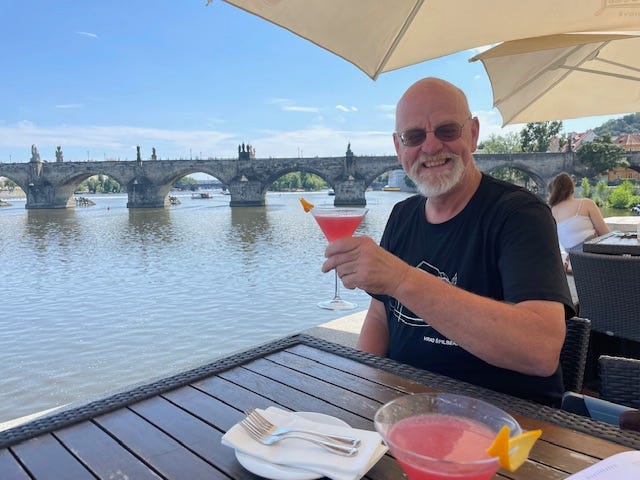Travel Diary 6: Miscellaneous observations
Being a traveller rather than a tourist.
So, am back in Australia, have recovered from the jet lag. Between a conference, and upcoming presentation, some further consultancy work and my day job, posting has been, and will remain, light to variable.
Some observations from the Central European trip that did not make it into previous posts.
The Habsburg-created military museum in Vienna, in its presentation on the Great War (1914-1918), made it clear that, by 1917, the Habsburg monarchy had achieved its war objectives. Russia had been defeated, Serbia conquered and the Italians held at bay. It is therefore hardly surprising that Emperor Karl tried to find an end to the War. The Western Allies were not interested.

On the tram from Bratislava to the main train station, rather chubby Roma kids were very aggressively demanding money from the passengers, particularly female passengers, with no success that I could see. It struck me that this was not a way to make friends. There were distinct echoes of the millennia-old divide between pastoralists and farmers, where pastoralists view farmers as weaklings to take advantage of and the farmers view pastoralists as nasty pests.
Part of the fun of the trip was the continuing saga of the Strongbow cider that wasn’t. Nigel, my business partner, is very fond of cider. As a man of taste he is not keen on Strongbow cider—cheap cider we Australians sell to foreigners, just as Fosters is cheap beer we sell to foreigners.
Nevertheless, as a cider man, he would order cider even when the venue said it was Strongbow. Weirdly, it never was, which was a pleasant surprise and relief. It became a bit of an ongoing joke.

There was a distinct lack of obvious safetyism in Central Europe. Trams would rattle through squares and pedestrians were just expected to keep out of the way. Alcohol was on sale everywhere, yet I did not see any public drunkenness. Food delivery folk would rattle through squares on Segways and similar, clearly without any mechanical speed caps. We were able to Seqway across a main traffic bridge in Budapest.
It is almost as if the Central Europeans decided that folk are adults, and could be treated as such. Given their history, safetyism probably does come across as a bit silly. Meanwhile, in Anglosphere societies with long history of wars, massacres, mass murders happening somewhere else and to other people, a “you are all children” safetyism is all the rage.
Coming back into Melbourne airport, it was quite noticeable that Australia had the most mechanised processing. But we do not import masses of low-skill migrants, so we mechanise lots of stuff that elsewhere in the Anglosphere are done by said migrants and the pattern is clearly catching.
Mark Twain once wrote that:
Travel is fatal to prejudice, bigotry, and narrow-mindedness, and many of our people need it sorely on these accounts. Broad, wholesome, charitable views of men and things cannot be acquired by vegetating in one little corner of the earth all one's lifetime.
Meanwhile, G.K. Chesterton famously said that travel narrows the mind. He also distinguished between a traveller and a tripper (i.e. tourist):
I had pottered about in France ever since my father took me there as a boy; and Paris was the only foreign capital I knew. I owe it to him that I was at least a traveller and not a tripper. The distinction is not snobbish; indeed it is one rather of epoch than education; half the trouble about the modern man is that he is educated to understand foreign languages and misunderstand foreigners. The traveller sees what he sees; the tripper sees what he has come to see.
I have long thought I am not a natural traveller. But perhaps I am merely not a natural tourist. I knew something of the history of Central Europe, but I went there to see what I could discover, what I could find out. I discovered quite a lot, and have attempted to relay things I discovered in these posts.
I did not change my view of people, as I have long since decided we are all just Homo sapiens and really dislike/despise attempts to create moral caste systems. But the trip gave me a far better feel for the history of Central Europe, how they deal with it, and what globalisation looks like on the ground. Besides, it was lots of fun.
References
David Frye, Walls: A History of Civilization in Blood and Brick, Faber & Faber, 2018.



That looks good Cosmo?
What a lovely post. Laughing about the Strongbow.